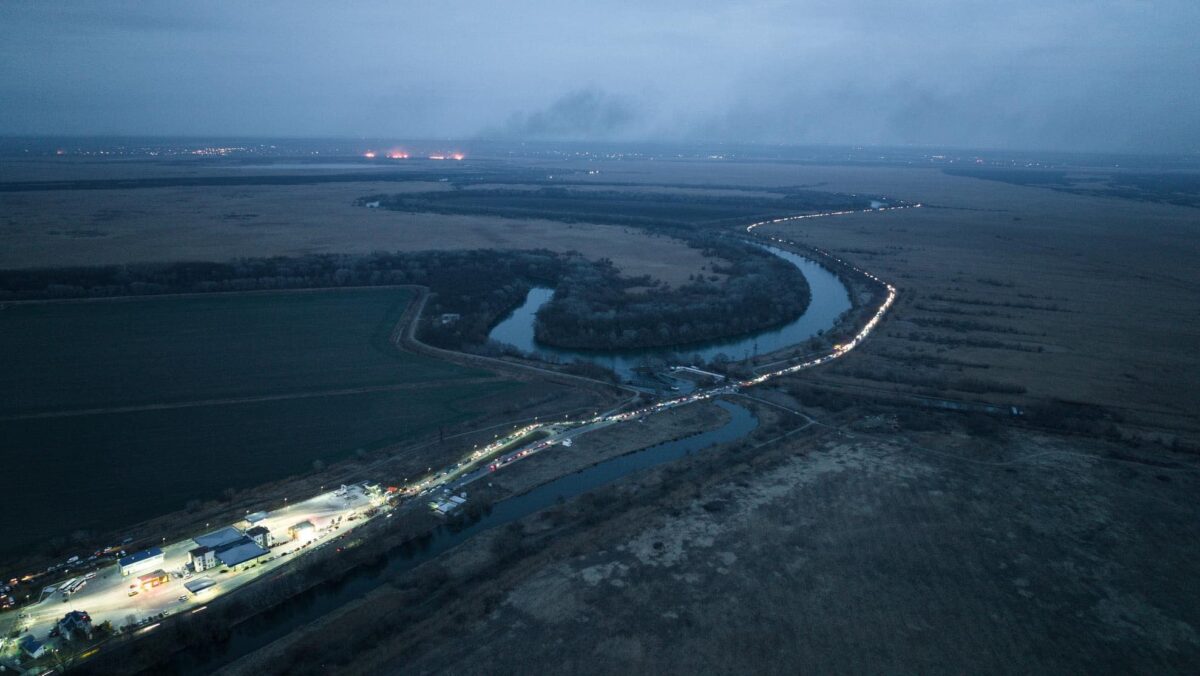We’re seven days into the war, and while devastated by what is happening in Ukraine, we are also filled to the brim with gratitude. In the middle of this ongoing crisis you have entrusted and empowered us to be your hands and feet on the ground, and we want you to know, in case there was ever any doubt, we take this task very seriously.
Since the war broke out, everyone has been scrambling to do whatever they can to help the refugees. It’s been amazing to see the response of civil society, individuals, organisations, businesses and public authorities – everyone ready and willing to drop everything and run to help. The urgency with which people responded was necessary and has, undoubtedly, helped many who have come across our borders. As time passes, however, we know from experience that the initial adrenaline that drove people to action in the beginning, will necessarily diminish. It’s only been a week, and we can already see cracks appearing at the surface. People are getting tired, as they slowly realise that this sprint is turning into a marathon.
We did not join the crowds of cars rushing to the borders to deliver sandwiches and hot tea to the refugees. Instead we’ve been in close contact with trusted friends who are already there and who can tell us what is happening and what is needed. Thankfully, systems have been put in place, and everyone crossing the borders are being taken care of. Bread and supplies are rotting on the ground, because deliveries keep coming from the cities, but the needs are already met. At this point, there are so many people trying to get to the border to help, that there are kilometres upon kilometres of queues of cars that never manage to even reach the border. We’ve quickly realised that our help is needed elsewhere.
Over the last week, we’ve been on the phone with people in Kyiv and other cities in Ukraine, who are hiding in basements and bathtubs, terrified for their lives, and desperate but unable to get to safety. In our understanding, these are the people who most urgently need our attention.
Because, at this very moment, the biggest humanitarian crisis is not on our borders but further into the war-torn country of Ukraine. Using our networking skills, we have managed to create an ever-expanding network of people inside and outside Ukraine, who are in need of help or able to offer help in some shape or form. Over the last week, we’ve been on the phone with people in Kyiv and other cities in Ukraine, who are hiding in basements and bathtubs, terrified for their lives, and desperate but unable to get to safety. In our understanding, these are the people who most urgently need our attention.
It is by navigating through this extensive network that we’ve been able to help extract people from war-zones and into safety, at least temporarily. We thank you, because you empowered us to help a young lady who’s about the get married, get to safety, after many days of hiding alone in a basement in Kiev.
Today we are working hard to try and help an elderly woman and her adult son, who is disabled, get out of the country and to safety. He is particularly vulnerable because the Ukrainian military do not care about his disability, they only see that he is a man and they demand that he stays and fights. We are doing all we can to coordinate his extraction, but this is demanding and slow work that requires great effort, lots of wisdom, and even more patience. We thank you, because with your help we are able to concentrate on what needs to be done, and move quickly when needed. (As I write this email, my husband is telling me that he received news that the elderly woman with her adult disabled son have been successfully taken out of Ukraine, through the miracle of networking, and a good portion of grace!)
We hope this gives you a clearer image of what our days look like. We are working hard every day to save lives, one at a time. And you’re the ones helping us to do it.
The picture you see is taken on the most southern border between Moldova and Ukraine. This is where the largest wave of refugees are coming in, and just 15 km away, you can see the fires from the bombs and explosions in Odessa.
Most of the refugees coming to Moldova do not want to leave; they want to stay in Chișinau, as close to their homes as possible, in the hope that they will soon be able to return. We’ve had long conversations with people who are there about what they need, and we’re still gathering information. In a few days we will have a clearer image, and we will make a decision about whether we will put together a small but professional task force, which can go there and help.
If you have any questions about what is going on, or suggestions for people we should be in touch with, please do not hesitate to contact us. If you know anyone who would like to contribute or who would like to receive our updates, please tell them to get in touch with us (contact@polylogos.eu).

